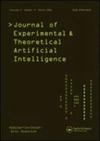使用基于mdct的特征和监督学习检测AAC压缩
IF 1.7
4区 计算机科学
Q3 COMPUTER SCIENCE, ARTIFICIAL INTELLIGENCE
Journal of Experimental & Theoretical Artificial Intelligence
Pub Date : 2021-01-31
DOI:10.1080/0952813X.2021.1882003
引用次数: 1
摘要
音频文件是恶意用户利用虚假内容进行非法牟利交易的常见目标。为了提高人们对音频文件完整性的信心,对虚假内容的检测是一项重要的任务。本文提出了一种检测可疑WAV文件上的高级音频编码(AAC)压缩的方法,其中修改离散余弦变换(MDCT)的方差具有四种压缩比特率:未压缩、64 kbps、128 kbps和256 kbps。该方案利用了压缩信号中高频MDCT系数方差的减小。从MDCT系数中获得的数据生成高维特征空间。因此,主成分分析,然后是线性判别分析,用于将高维数据投影到低维空间。此外,比较了六种监督学习算法对四种压缩比特率的分类。实验表明,使用20秒的音频样本和1024个MDCT系数,贝叶斯分类器的准确率达到93%。此外,未压缩和压缩信号之间的检测与多项逻辑回归达到97%的精度。综上所述,该方法可以检测到之前的AAC压缩,并且可以在无法完全恢复可疑信号时使用。本文章由计算机程序翻译,如有差异,请以英文原文为准。
Detection of AAC compression using MDCT-based features and supervised learning
ABSTRACT Audio files are frequent targets of malicious users who seek illegal profit trading with fake-quality content. For increasing the confidence in the integrity of audio files, the detection of fake-quality content is an important task. This paper proposes a method for detecting Advanced Audio Coding (AAC) compression on suspicious WAV files, in which the variance of the Modified Discrete Cosine Transform (MDCT) characterises four compression bitrates: uncompressed, 64 kbps, 128 kbps, and 256 kbps. This scheme takes advantage of the reduction of the variance of the high-frequency MDCT coefficients in compressed signals. Data obtained from MDCT coefficients generate a high-dimensional feature space. Hence, Principal Component Analysis, followed by Linear Discriminant Analysis, is used for projecting the high-dimensional data onto a lower-dimensional space. Besides, six supervised learning algorithms are compared for classifying four compression bitrates. The experiments show that using audio samples with 20 seconds and 1024 MDCT coefficients, an accuracy of 93% is reached with a Bayesian classifier. Collaterally, the detection between uncompressed and compressed signals attains an accuracy of 97% with Multinomial Logistic Regression. In conclusion, the proposed approach can detect previous AAC compression and can be potentially used when it is unfeasible to recover the suspicious signal completely.
求助全文
通过发布文献求助,成功后即可免费获取论文全文。
去求助
来源期刊
CiteScore
6.10
自引率
4.50%
发文量
89
审稿时长
>12 weeks
期刊介绍:
Journal of Experimental & Theoretical Artificial Intelligence (JETAI) is a world leading journal dedicated to publishing high quality, rigorously reviewed, original papers in artificial intelligence (AI) research.
The journal features work in all subfields of AI research and accepts both theoretical and applied research. Topics covered include, but are not limited to, the following:
• cognitive science
• games
• learning
• knowledge representation
• memory and neural system modelling
• perception
• problem-solving

 求助内容:
求助内容: 应助结果提醒方式:
应助结果提醒方式:


